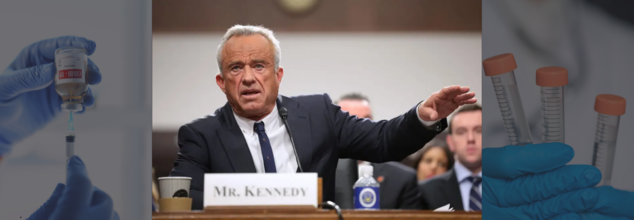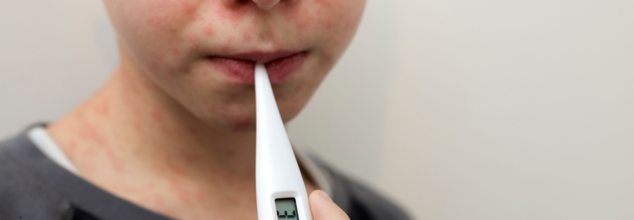- Health Conditions A-Z
- Health & Wellness
- Nutrition
- Fitness
- Health News
- Ayurveda
- Videos
- Medicine A-Z
- Parenting
- Web Stories
NHS Needs 1 Million Blood Donors To Prevent 'Red Alert' Emergency Shortage

Credits: Canva
The NHS has issued a nationwide appeal calling more than one million individuals in England to come forward and become routine blood donors. The urgent call to action follows the fact that blood supplies are reaching perilously low levels, jeopardizing the safety and security of hospital care throughout the nation. NHS Blood and Transplant (NHSBT), the body that oversees England's blood supply, cautions that if the gap in donors is not filled, there will be a "red alert"—a crisis level at which patient care is directly put at risk.
Fewer than 800,000 individuals, or only 2% of England's population, are currently keeping the nation's blood supply going. With demand increasing and supplies depleted as a result of emergencies, cyberattacks, and missed appointments, health authorities warn that this figure is no longer tenable.
A "red alert" level in blood supply control is one thing: hospitals can be forced to put off or cancel life-saving operations because inventory is perilously low. The UK has already had a July "amber alert," prompted by a cyberattack affecting London hospitals, which caused a substantial dislocation of logistics and demand. NHSBT reports that stocks have recovered somewhat since July but remain below levels of safe operation—especially for some key blood types.
O negative blood, or the universal donor type, is particularly in demand. It's the go-to in emergency cases when the patient's blood type is not known. Transported by air ambulances and utilized in trauma centers, it represents about 16% of hospital orders. Supplies of this type are currently critically low.
Why Black Donors Are Particularly Needed?
Another issue of urgency is a shortage of Black community blood donors. Black individuals are more likely to be rare blood types such as Ro, which is important to treat illnesses such as sickle cell disease—a hereditary condition disproportionately impacting individuals of African and Caribbean backgrounds.
NHSBT has always stressed the need for a diverse donor base, but improvement is slow. Even with rising campaigns, rates of donation from minority populations are failing to match medical demands. This disparity leaves patients with certain conditions at higher risk of complications, delayed treatment, or transfusion reaction due to unavailability of compatible blood.
The NHS drive to sign up one million regular donors is ambitious, but desirable. In 2024, an additional number of people signed up to become donors—but just 24% actually completed a donation. NHSBT considers a regular donor someone who gives blood at least once in a 12-month period. Which means most registered people aren't yet active members of the pool of blood contributors.
The process gets more alarming when taking into account how blood is utilized. About two-thirds of the blood collected is used to treat individuals who need continuous transfusions—patients with cancer, patients with blood diseases such as thalassemia or sickle cell, and patients receiving intricate surgeries.
Dr Jo Farrar, NHSBT Chief Executive, made a heartfelt plea to the public, saying, "If we had a million regular donors, it would keep our stocks healthy—you'd really be one in a million. Book an appointment today, feel good about saving lives, and come back and do it again a few months later."
This is supported in a plea by Health Minister Baroness Merron, who further added, "We are working with NHS Blood and Transplant to make giving blood simpler than ever before, opening new donor centres and making it possible to book appointments nearer home."
To increase participation, the NHS is expanding access to blood donation facilities and modernizing the booking process. Mobile blood drives, walk-in clinics, and new donor centres are being launched across cities and towns to reduce the friction between intention and action.
Both men and women are qualified to donate blood—men every three months and women every four months. The process is fast, safe, and can save as many as three lives per donation.
What Happens if There Is A Blood Shortage?
When blood levels drop into the red alert level, hospitals can be required to delay non-emergency procedures, limit access to routine transfusions, and ration patients by severity. These actions could result in preventable deaths and decreased health outcomes for thousands of people.
Previous incidents, the July 2024 amber alert for example, revealed how susceptible the system is to shock when something unforeseen—such as a cyberattack—shatters the equilibrium. In that instance, O negative inventory dropped to only 1.6 days' supply. A red alert would signal complete depletion.
The demand is obvious and imperative. Only 2% of individuals now bear the burden of a nation's blood supply. The NHS is calling on more citizens to volunteer and join a life-saving system that stretches across hospitals, accident and emergency departments, and ambulances.
Whether you're O negative, A positive, or another blood type entirely—your donation counts. Routine donors are the quiet healthcare heroes. Today is the day to become one.
RFK Jr. Removes Entire CDC Vaccine Advisory Committee

Credits: Getty Images and Canva
Shocking to many, expected for more, the US Health Secretary Robert F Kennedy Jr on Monday removed every member of a scientific committee that advises the Centers for Disease Control and Prevention (CDC) on how to use vaccines. He has also pledged to replace them with his own picks.
This is the Advisory Committee on Immunization Practices (ACIP), from where 17 members have been removed. This step has been criticized by many physicians and public health groups.
It may come as a shock to many, but in all fairness, it was known that Kennedy was among the nation's leading anti-vaccine activists before he became the nation's top health official. While he has revealed that the members will be his own pick, he has not said who would he appoint. However, as per reports, this should convene in two week in Atlanta. It is also important to note that the entire roster of committee members were in fact, Biden appointees.
In an opinion piece published in the Wall Street Journal, Kennedy wrote: “Without removing the current members, the current Trump administration would not have been able to appoint a majority of new members until 2028. A clean sweep s needed to re-establish public confidence in vaccine science."
The reports say that the former panel members received an email on a late Monday afternoon that said that their services had been terminated without any reason. Many of whom had not served a full term.
While his steps are being criticized, they must not be seen as a shock as Kennedy had already taken the unusual step of changing COVID-19 recommendations without first consulting the committee.
As per Kennedy, the committee members had too many conflict of interests. However, as the US News reports, Dr Tom Frieden, who is the president and CEO of Resolve to Save Lives and former director of CDC said that Kennedy's actions were based on false conflict of interest claims and that they set a "dangerous and unprecedented action that makes our families less safe". As this step can significantly reduce vaccine access to many people.
“Make no mistake: Politicizing the ACIP as Secretary Kennedy is doing will undermine public trust under the guise of improving it,” he said in a statement. “We’ll look back at this as a grave mistake that sacrificed decades of scientific rigor, undermined public trust, and opened the door for fringe theories rather than facts.”
ALSO READ: What Are The Key Takeaways From RFK Jr.'s CDC Press Conference On Autism Report?
RFK Jr.'s Past Remarks On Vaccines
In a podcast interview, he said, "There is no vaccine that is safe and effective" and told FOX News that he still believes in the now long-debunked idea that vaccines can cause autism. In another 2021 podcast, he urged people to "resist" CDC guidelines on getting their kids vaccinated. "I see somebody on a hiking trail carrying a little baby and I say to him, better not get them vaccinated," he said.
His non-profit also led an anti-vax campaign sticker and he appeared next on the screen to a sticker that read: "If you are not an anti-vaxxer you are not paying attention," reports AP. He told the FOX News that "autism comes from vaccine". However, vaccination has indeed saved more lives.
After taking the charge of the office, Dr Peter Marks, one of the top US Food and Drug Administration (FDA)'s leaders and scientist in vaccine regulation had also been ousted. Several sources have also reported that his resignation was not voluntary, in fact he was reportedly told to 'resign or get fired'.
Stay Updated On CDC and RFK Jr. Here
Measles Outbreak Update: Pennsylvania And Michigan Report An End, While Cases Slow Down In Many States

Credits: Canva
The Unites States reported 122 new cases of measles last week, which has brought the national total to 1,168 in 2025. This data is released by the Centers for Disease Control and Prevention (CDC). While the outbreaks in Pennsylvania and Michigan have officially ended, others across North America continue to unfold, including in parts of Texas, New Mexico, and Canada.
Resurgence of a Vaccine-preventable Disease
Measles is caused by a highly contagious airborne virus that spreads through coughing, sneezing, or even breathing near an infected person. It had been declared eliminated from the U.S. in 2000 thanks to widespread vaccination efforts. However, recent declines in vaccination rates and increased international travel have led to a resurgence. The disease can lead to severe complications such as pneumonia, encephalitis (brain swelling), and death, especially in unvaccinated individuals.
The best defense against measles remains the MMR (measles, mumps, rubella) vaccine, typically administered in two doses during early childhood. Yet, the U.S. has seen a growing number of vaccine exemptions, which health experts say undermine community immunity.
Texas Update
Texas experienced the country’s largest outbreak this year, with 742 cases reported across 35 counties. Most were concentrated in Gaines County, where a close-knit, undervaccinated Mennonite community accounted for more than half of the state’s total cases. Two unvaccinated children — aged six and eight — died in separate incidents earlier this year.
As of this week, fewer than 10 individuals in Texas are estimated to still be infectious. State health officials will now provide updates weekly instead of daily, suggesting the worst of the outbreak may be over.
Active Outbreaks In Other States
As per CDC if a state reports three or more related cases, it would be defined as an outbreak:
- New Mexico has reported 81 total cases and one death. Most are in Lea County.
- Oklahoma has 15 confirmed and three probable cases, though locations remain undisclosed.
- Colorado has logged 12 cases, including a seven-case outbreak tied to a Turkish Airlines flight in May.
- Illinois reports eight cases in its southern region and two in Cook County.
- Kansas has 71 cases, mostly in Gray County.
- Montana, facing its first outbreak in 35 years, has 17 cases.
- North Dakota now has 34 cases, all among unvaccinated individuals.
- Ohio has reported 34 cases in two separate outbreaks.
- Canada and Mexico See Major Outbreaks Too
Canada’s Ontario province has seen the longest outbreak in North America, with 2,009 cases and one death in a baby with congenital measles. Alberta has 761 cases. In Mexico, the state of Chihuahua reported 1,940 cases and four deaths.
Symptoms and Treatment
Measles symptoms start with high fever, cough, runny nose, and red eyes, followed by a spreading rash. Complications can be severe, especially for young children and immunocompromised individuals. There is no specific antiviral treatment; care typically focuses on symptom management and avoiding further spread.
CDC Warns Travelers of Measles Risk at Airports and Popular Destinations

Credits: Canva
As the summer travel season peaks, the Centers for Disease Control and Prevention (CDC) has issued an important advisory to travelers about the re-emergence of measles in the US, specifically highlighting the risk of contracting the highly contagious disease at airports and other crowded transit points. Once being declared eradicated from the United States in 2000, measles has has made a unsettling comeback, fueled primarily by declining vaccination rates and global travel. With more than 1,100 reported cases across the country this year alone, the CDC's warning is a harsh reminder that this preventable illness is a very real and present danger—particularly in areas thick with travelers.
For generations, measles was a thing of the past in the U.S. due to widespread vaccination campaigns. The disease was almost eradicated over the last two decades, with only sporadic imported cases and small outbreaks occurring. Recent trends, though, have turned this tide of progress around. This year's figure of 1,157 cases already exceeds numbers from earlier years, indicating a public health problem not witnessed since 2019, when a large-scale outbreak rocked communities.
Much of this increase stems from a multistate outbreak concentrated in West Texas, but the risk is far from localized. The CDC highlights that the virus is highly contagious and can spread rapidly in places like airports, train stations, planes, crowded events, and tourist attractions—anywhere large numbers of people converge, particularly if some are unvaccinated or susceptible.
Why Airports and Travel Hubs Are High-Risk Zones?
Airports stand out for their ability to transmit disease. They are gateways to and from around the world with tightly packed crowds, frequently crowded waiting rooms, and intimate mingling among travelers from all parts of the globe—some from nations where measles remains endemic. The CDC travel notice emphasizes that travelers can catch measles while in these locations, then return home with the virus and spread it further.
The extreme infectiousness of measles makes it so that casual exposure to an infected individual or contact with contaminated surfaces can result in infection. Fever, cough, rash, and serious complications such as seizures and blindness are all symptoms that make it a dangerous virus, particularly for infants, pregnant women, and the immunocompromised.
Why Is Measles Surging?
The resurgence is largely due to vaccine hesitancy and disinformation that have caused some parents to skip or postpone childhood vaccinations. The implications are evident: areas of under-immunized communities are fertile breeding grounds for measles outbreaks. Anti-vaccine attitudes, in some cases spurred on by misinformation and suspicion of medical institutions, have been a prime force behind the current resurgence.
Adding to this problem is the amount of travel anticipated this summer. As millions of American travelers flood airports, trains, and vacation spots, the risk of transmission increases, particularly in areas with lower vaccination levels.
Vaccine Guidance and Precautions for Travelers
The CDC advises all international travelers to make sure they are up to date with their measles vaccination, including two doses of the measles-mumps-rubella (MMR) vaccine at least 28 days apart. Infants 6 to 11 months old traveling internationally should also receive an additional dose of MMR vaccine prior to travel.
Those born prior to 1957 are presumed to have had natural immunity from childhood exposure and thus are not recommended to be vaccinated by the CDC or Texas public health officials except in the case of healthcare personnel who work in outbreak areas, for whom two doses should be administered regardless of year of birth.
Some individuals, like pregnant women, infants younger than six months, and individuals with severely compromised immune systems, are not eligible for the vaccine. These persons should speak with their physicians regarding their individual risk and possible preventive action, like immunoglobulin therapy, that will provide temporary protection once exposed.
How to Stay Safe While Traveling?
Experts recommend that travelers take a proactive role by getting their immunity status checked sufficiently in advance of their travel—ideally six weeks or more ahead. This can include checking vaccination history, laboratory tests, or evidence of previous infection. Suspected exposure to measles calls for immediate medical consultation, since early administration of MMR vaccine or immunoglobulin can cut down on disease severity.
Along with vaccination, routine preventive precautions are important: frequent washing of hands, avoidance of contact with the sick, remaining in well-ventilated places, and use of masks when required, particularly for those with high risks of developing complications.
Travelers need to prepare as well by bringing along medications that are necessary and learning about healthcare facilities in the destinations. Checking the CDC's travel health notices may offer current information on risks and vaccine requirements for countries.
The recent measles outbreak is a cautionary example of the vulnerability of disease elimination efforts. Even as vaccination campaigns have long kept measles at bay, recent slippages risk undoing decades of gains. The warnings from the CDC occur at a time when wider concerns exist regarding vaccine misinformation and waning public trust in immunizations.
The consequences are dire. Measles is not a harmless childhood disease; it can result in severe complications, hospitalization, and even death. Already this year, at least two children and one adult have died from measles-related complications in the United States, and these figures may increase as travel continues and outbreaks multiply.
Travelers need to understand that immunity is the best defense against measles. Howsoever healthy your living style, germs do not distinguish between people—germs infect the unimmunized, the weak, and those who come in close proximity to carriers equally.
© 2024 Bennett, Coleman & Company Limited

